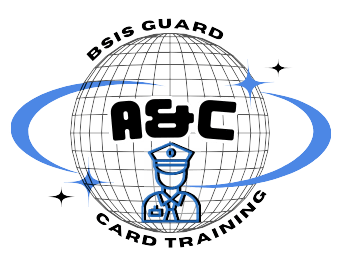In California, security guards play a crucial role in maintaining safety and order, but their authority to make arrests is limited. Unlike law enforcement officers, security guards cannot formally arrest individuals. However, they can perform a citizen’s arrest under specific circumstances.
This article explains when and how security guards can make arrests, the legal boundaries they must follow, and the importance of prioritizing de-escalation and non-arrest techniques.
When Can Security Guards Make an Arrest?
Security guards in California can only make an arrest under the citizen’s arrest law, and even then, the circumstances are very limited. Below are the key conditions that must be met:
- Witnessing the Crime
Security guards must directly witness the crime taking place. Observing the aftermath, such as property damage or theft, does not give them the authority to make an arrest. - Reasonable Grounds
Security guards must have reasonable grounds to believe that a crime is being committed. This means they must observe clear evidence of criminal activity. - Property-Specific Authority
Security guards generally have authority only on the property they are responsible for protecting. Crimes committed offsite are outside their jurisdiction. - Use of Force
If force is necessary, it must be reasonable and proportionate to the situation. Excessive force can lead to legal repercussions for the guard and their employer. - Detainment Time
Security guards cannot detain a person for an unreasonable amount of time. After making a citizen’s arrest, the individual should be handed over to law enforcement promptly. - Clear Identification
Security guards must identify themselves as security personnel and explain the reason for detainment in a calm, professional manner.
Best Practices for Security Guards When Handling Arrest Situations
While citizen’s arrests are legal in California, security guards are strongly encouraged to avoid making arrests whenever possible. Instead, they should focus on the following:
- De-Escalation: Use verbal communication and conflict resolution strategies to defuse tense situations.
- Observation and Reporting: Document and report the incident to law enforcement rather than taking direct action.
- Non-Arrest Approaches: Employ techniques like maintaining a visible presence, directing individuals to leave the property, or contacting the police for assistance.
Phrasing Matters: What Security Guards Should Avoid Saying
When detaining an individual, security guards should avoid phrases like “You’re under arrest,” which could imply formal police authority. Instead, they should use professional, non-confrontational language, such as:
- “Please remain here until the authorities arrive.”
- “You are being detained for this specific reason.”
These phrases help clarify the situation without escalating tensions.

Ready to start your career as a security guard? Enroll in our BSIS-approved Guard Card training today and take the first step toward becoming a certified security professional!
FAQs About Security Guard Arrest Authority
Do security guards have any power?
Yes, security guards have the power to protect property, ensure safety, and, in some cases, perform citizen’s arrests. However, their powers are limited compared to law enforcement officers.
Can security guards detain you in the US?
Security guards can detain individuals under citizen’s arrest laws if they directly witness a crime. They must follow legal guidelines, such as detaining the individual only for a reasonable time until law enforcement arrives.
What are the limitations of a security guard?
Security guards cannot formally arrest individuals, search personal property without consent, or use excessive force. Their authority is restricted to protecting the property they are assigned to.
What are the two basic types of arrest for security guards?
The two types are:
- Citizen’s Arrest: When a security guard witnesses a crime and detains the individual until law enforcement arrives.
- Detention for Law Enforcement: When a security guard detains a person based on reasonable grounds while awaiting police intervention.
Is a security officer required to make an arrest if he sees a crime committed on his post? (True/False)
False. Security guards are not required to make arrests; they are encouraged to report incidents to law enforcement and use non-arrest approaches.
Is a security personnel’s role the same as a peace officer?
No, security guards are not peace officers and do not have the same authority. Their role is limited to observing, reporting, and deterring criminal activity.
What Security Guards Can and Cannot Do
Security guards must operate within specific legal limits. Here’s a quick summary:
What Security Guards Can Do:
- Protect property and enforce rules on private premises.
- Perform citizen’s arrests if legal criteria are met.
- Document and report incidents to law enforcement.
What Security Guards Cannot Do:
- Formally arrest individuals like police officers.
- Use excessive force or act beyond their authority.
- Detain someone for an unreasonable amount of time.
Legal Considerations for Security Guards in California
Security guards should always be trained in non-arrest approaches, including conflict resolution, de-escalation tactics, and effective communication strategies. Employers are encouraged to provide ongoing training to ensure guards understand their legal limits and responsibilities.
Conclusion: The Role of Security Guards in Arrest Situations
While security guards in California can perform citizen’s arrests under limited circumstances, their primary role is to protect property and ensure safety through observation, deterrence, and reporting. Proper training and a focus on de-escalation techniques are key to handling challenging situations professionally and effectively.
Are you looking to become a security guard or enhance your skills? BSIS Guard Card Training offers comprehensive courses that prepare you for the responsibilities of this critical role. Enroll today to take the first step toward a rewarding security career.

